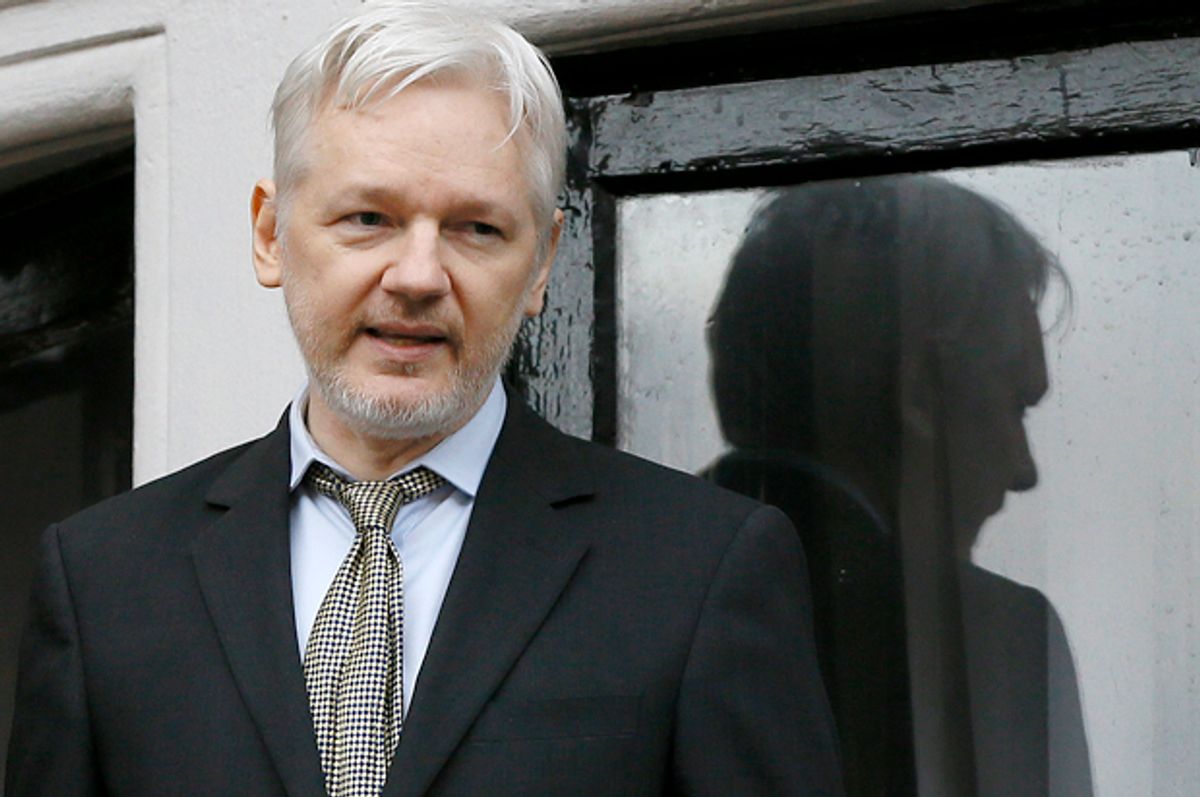Ecuador has admitted that it limited Julian Assange’s internet access on Monday to stop him from interfering in the US presidential election.
As the South American nation explained in a statement released Tuesday, “the Government of Ecuador respects the principle of non-intervention in the internal affairs of other states. It does not interfere in external electoral processes, nor does it favor any particular candidate.
“Accordingly, Ecuador has exercised its sovereign right to temporarily restrict access to some of its private communications network within its Embassy in the United Kingdom. This temporary restriction does not prevent the WikiLeaks organization from carrying out its journalistic activities.”
BREAKING: Ecuador admits it cut off Assange's internet due to his use of it to interfere in the U.S. election. pic.twitter.com/VNJ6sdHhHj
— Eric Geller (@ericgeller) October 18, 2016
Assange, who’s been taking refuge at the country’s London embassy since 2012, has been sharply criticized for his site’s perceived bias in favor of Republican candidate Donald Trump. They’ve sold anti-Clinton merchandise on their site, been accused of colluding directly with the Trump campaign and have released massive data dumps from the email account of John Podesta, Clinton’s campaign chair.
A 12th set of emails was released Wednesday morning.
When Assange’s internet was first shut down, WikiLeaks insinuated the blocked access was in retaliation for his release of Hillary Clinton’s Goldman Sachs speeches, and proclaimed that “contingency plans” were in place to continue leaking classified government documents.
On Tuesday, WikiLeaks tweeted that “multiple US sources” told them Secretary of State John Kerry had asked Ecuador to stop Assange’s leaks while America worked on peace negotiations with FARC, the Colombian rebel party that is currently in talks to end that nation’s longstanding civil war.
Despite these assertions, there is no evidence that the American government exerted pressure on Ecuador to deny internet access to Assange, with its public letter insisting that “Ecuador’s foreign policy responds to sovereign decisions alone and does not yield to pressure from other states.”

Shares